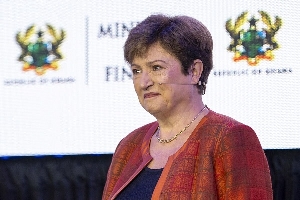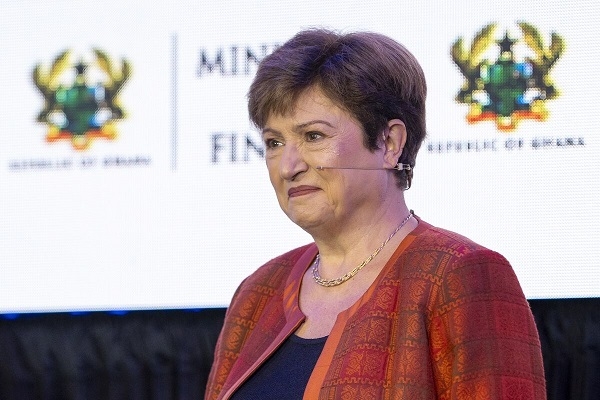 Managing Director of the IMF, Kristalina Georgieva
Managing Director of the IMF, Kristalina Georgieva
The International Monetary Fund (IMF) has downgraded its global growth forecast to 2.8% for 2025, a significant drop from the 3.3% forecast made in January.
This update is contained in the IMF’s April 2025 World Economic Outlook (WEO), which cites escalating trade tensions, particularly the United States’ announcement of a wave of new tariffs, followed by countermeasures from trading partners, as major contributors.
These developments have caused ripple effects across global supply chains and dampened investor sentiment.
The report also highlights mounting policy uncertainty as a key factor behind the slowdown.
“Since the release of the January 2025 WEO Update, a series of new tariff measures by the United States and countermeasures by its trading partners have been announced and implemented, culminating in near-universal U.S. tariffs on April 2 and bringing effective tariff rates to levels not seen in a century.
“This alone is a major negative shock to growth. The unpredictability with which these measures have been unfolding also has a negative impact on economic activity and the outlook. At the same time, it makes it more difficult than usual to make assumptions that would constitute a basis for an internally consistent and timely set of projections,” the report stated.
In advanced economies, growth is now expected to slow to 1.4% in 2025, with the U.S. economy seeing a notable downgrade, now projected at 1.8%, nearly a full percentage point below previous estimates.
In emerging markets and developing economies, growth is projected to slow to 3.7% in 2025 and 3.9% in 2026, with significant downgrades for countries most affected by recent trade measures, such as China.
The IMF flagged intensifying downside risks, warning that a deeper trade war, rising financial instability, and fragile policy buffers could further deteriorate the global economic outlook.
Vulnerable emerging markets, in particular, could face capital flight, currency pressures, and increasing debt burdens.
The Fund also noted that a reversal or de-escalation of current trade policies could offer a reprieve and potentially revive global growth.
SP/MA
Watch the latest edition of BizTech below:
Click here to follow the GhanaWeb Business WhatsApp channel
